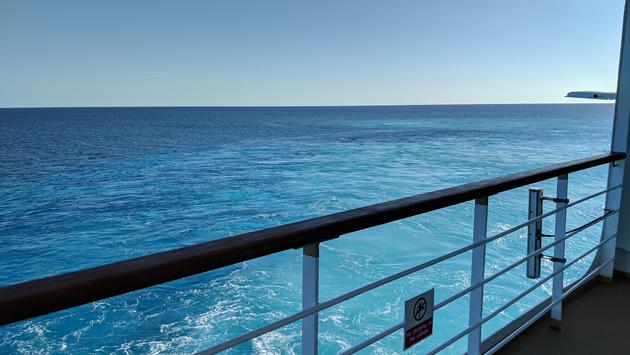The Debate on Whether Cruise Lines Deserve Federal Assistance

As cruise line operations have ground to a halt, a debate rages on whether the industry deserves federal assistance. President Trump has mentioned cruise lines as a possible beneficiary of the coronavirus stimulus bill close to passage.
However, opposition was swift, both in the nation’s capital and on social media. Politicians object to the industry’s use of foreign-flagged ships and its environmental record. Several environmental groups—including Friends of the Earth and Greenpeace—also publicly opposed any bailout to the cruise industry.
Rep. Jackie Speier, a Democrat from California, tweeted her objection and joined four others to sign a letter to congressional leadership.
“For decades, cruise companies have deliberately dodged U.S. taxes by incorporating in tax shelters and registering vessels under foreign flags,” the letter said in part. “Operating foreign-flagged vessels also allows cruise lines to circumvent U.S. labor, safety and regulatory requirements. While low tax rates and labor costs have allowed cruise companies to net sizable profits, the industry has spent billions on share repurchasing to line the pockets of executives and investors and failed to invest in addressing its abysmal environmental record and massive carbon footprint.”
So far, the cruise industry does not appear to be included in what could be a $2 trillion rescue plan, Terry Dale, president and CEO of the U.S. Tour Operators Association (USTOA), noted in an email update late March 23.
“President Trump continues to indicate his support for the cruise lines, saying yesterday during a press conference that the federal government can’t let the cruise industry fail due to the coronavirus pandemic,” Dale noted. “It is important to note that the current version of the Senate Republican legislation does not mention them specifically. The President stated, ‘We can’t let the cruise lines go out of business.’”
The Cruise Lines International Association (CLIA), which represents cruise companies globally, said it is not lobbying for a bailout.
“As it relates to the rescue package, cruise lines are not lobbying for a bailout. CLIA and our members agree that the most important stimulus the government can provide on behalf of the wider cruise community in the United States is help for small- and medium-sized businesses, including a vast network of travel agencies, tour operators and suppliers, with a presence in all 50 states,” CLIA spokeswoman Bari Golin-Blaugrund wrote in an email.
She also notes that the cruise industry is a $53 billion community in the U.S. and supports over 421,000 jobs or approximately one job for every 30 cruisers.
“Unfortunately, the now-worldwide suspension of operations will impact families and communities in the United States,” she continued. “We know that for every 1 percent drop in cruising from the United States, up to 2,000 American jobs can be lost. We are asking Congress to provide assistance for those businesses who make up the wider cruise community.”
In 2018, CLIA said, the cruise industry paid $1.3 billion in taxes and fees to the U.S., including $170 million in federal taxes, $350 million in state and local taxes, $345 million in U.S. port and other service charges and fees, $50 million in corporate income taxes, $371 million in wage taxes, $23 million in sales and excise taxes, and $7 million in other taxes.
